CORPORATE ACTION: Amazon
Amazon Says It’s Relying Less On Single-Use Plastic Packaging
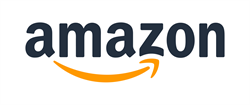 Amazon said it has reduced the volume of single-use plastic the online retailer used in shipping by 11.6%, or 25 million pounds, from 2021 to 2022. Data from the company’s latest sustainability report also highlighted its efforts to reduce cardboard and hard-to-recycle plastic packaging. These include using machine-learning software to determine which type of packaging to use and shipping packages in their own containers. Also, the company is replacing padded plastic bubble mailers with lightweight paper mailers. Amazon has removed single-use plastic bags from its European fulfillment centers and warehouses.[Image Credit: © Amazon.com, Inc.]
Amazon said it has reduced the volume of single-use plastic the online retailer used in shipping by 11.6%, or 25 million pounds, from 2021 to 2022. Data from the company’s latest sustainability report also highlighted its efforts to reduce cardboard and hard-to-recycle plastic packaging. These include using machine-learning software to determine which type of packaging to use and shipping packages in their own containers. Also, the company is replacing padded plastic bubble mailers with lightweight paper mailers. Amazon has removed single-use plastic bags from its European fulfillment centers and warehouses.[Image Credit: © Amazon.com, Inc.]
CORPORATE ACTION: Coca-Cola
Big Brands Launch Refillable Packaging To Help Cut Plastic Waste
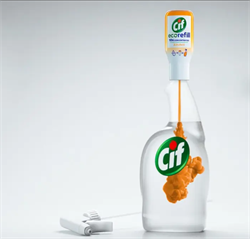 Manufacturers and brands, such as Unilever, Nestlé and Coca-Cola, are offering refill programs designed to reduce plastic waste and meet consumer demand for sustainable and budget-friendly refillable packaging. Data from the United Nations show refillable packaging, combined with other strategies, can help cut global plastic pollution, caused mainly by single-use plastics and packaging waste, by up to 80%. For example, Unilever offers pre-filled refillable packaging for its liquid detergent concentrate products, while Nestlé’s refillable vending machines offer “no packaging” solutions as a “zero-waste alternative”. Meanwhile, Milk & More is working with Coca-Cola to test a delivery, return, refill and reuse program for Coca-Cola Zero Sugar glass bottles.[Image Credit: © Unilever]
Manufacturers and brands, such as Unilever, Nestlé and Coca-Cola, are offering refill programs designed to reduce plastic waste and meet consumer demand for sustainable and budget-friendly refillable packaging. Data from the United Nations show refillable packaging, combined with other strategies, can help cut global plastic pollution, caused mainly by single-use plastics and packaging waste, by up to 80%. For example, Unilever offers pre-filled refillable packaging for its liquid detergent concentrate products, while Nestlé’s refillable vending machines offer “no packaging” solutions as a “zero-waste alternative”. Meanwhile, Milk & More is working with Coca-Cola to test a delivery, return, refill and reuse program for Coca-Cola Zero Sugar glass bottles.[Image Credit: © Unilever]
Coca-Cola North America Joins Forces With r.Cup To Offer Reusable Cups For Concessionaires
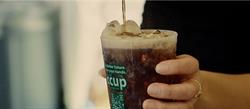 Coca-Cola North America has partnered with r.Cup to replace single-use cups with reusable cups at large sports and entertainment venues, movie theaters, festivals and events. The move is part of its efforts to achieve its goal of using reusable packaging in 25 percent of products worldwide by 2030. Through the collaboration, concessionaires have access to several types of polypropylene cups, which are then collected after use, then r.Cup collects, cleans, inspects and repackages the cups for reuse. The company also provides collection bins, staff training, signage and social media content.[Image Credit: © The Coca‑Cola Company]
Coca-Cola North America has partnered with r.Cup to replace single-use cups with reusable cups at large sports and entertainment venues, movie theaters, festivals and events. The move is part of its efforts to achieve its goal of using reusable packaging in 25 percent of products worldwide by 2030. Through the collaboration, concessionaires have access to several types of polypropylene cups, which are then collected after use, then r.Cup collects, cleans, inspects and repackages the cups for reuse. The company also provides collection bins, staff training, signage and social media content.[Image Credit: © The Coca‑Cola Company]
CORPORATE ACTION: Colgate
Colgate-Palmolive Marks Two Decades Of Taking Sustainability Seriously
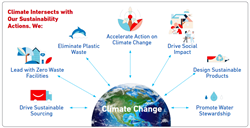 Colgate-Palmolive allocates 5 percent of its capital spending to waste reduction, climate initiatives and other sustainability activities. For more than two decades, the company has integrated sustainability as part of its supply chain DNA. The company no longer invests in new machines that cannot handle recyclable materials. Colgate also had the distinction of being the first large multinational corporation in its industry to have its net zero targets approved by the Science Based Targets initiative. These targets include 100 percent renewable electricity in its global operations by 2030.[Image Credit: © Colgate-Palmolive Company]
Colgate-Palmolive allocates 5 percent of its capital spending to waste reduction, climate initiatives and other sustainability activities. For more than two decades, the company has integrated sustainability as part of its supply chain DNA. The company no longer invests in new machines that cannot handle recyclable materials. Colgate also had the distinction of being the first large multinational corporation in its industry to have its net zero targets approved by the Science Based Targets initiative. These targets include 100 percent renewable electricity in its global operations by 2030.[Image Credit: © Colgate-Palmolive Company]
CORPORATE ACTION: Unilever
Unilever Sustainable Packaging Manager Discusses Career And Industry
 Kelly Murosky described her experiences as a product development professional and how she became a sustainable packaging manager at Unilever. She said her favorite part of her job is knowing that what she does directly contributes to the company’s goal of removing waste and reducing its impact on the environment. When she was starting out in her career as a female engineer, she had to assert herself because she was being “overlooked or not taken seriously”. Also, she said that while the industry is dominated by men, it offers a lot of opportunities for women.[Image Credit: © Unilever]
Kelly Murosky described her experiences as a product development professional and how she became a sustainable packaging manager at Unilever. She said her favorite part of her job is knowing that what she does directly contributes to the company’s goal of removing waste and reducing its impact on the environment. When she was starting out in her career as a female engineer, she had to assert herself because she was being “overlooked or not taken seriously”. Also, she said that while the industry is dominated by men, it offers a lot of opportunities for women.[Image Credit: © Unilever]
Pot Noodle Partners With Tesco To Test-Market New Paper Pot Packaging
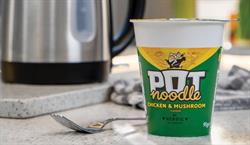 Pot Noodle has started a test run for its new recyclable paper pot in partnership with Tesco. The trial involves an initial stock that includes 500,000 units of the brand’s leading flavor, Chicken & Mushroom, and will gather shoppers’ feedback about the packaging. Development of the paper pot took more than three years, with the Hive R&D team leading the research efforts at Unilever’s Global Foods Innovation Centre in the Netherlands. A successful trial would result in switching the whole Pot Noodle range to paper pots and removing 4,000 tonnes of virgin plastic each year.[Image Credit: © Unilever]
Pot Noodle has started a test run for its new recyclable paper pot in partnership with Tesco. The trial involves an initial stock that includes 500,000 units of the brand’s leading flavor, Chicken & Mushroom, and will gather shoppers’ feedback about the packaging. Development of the paper pot took more than three years, with the Hive R&D team leading the research efforts at Unilever’s Global Foods Innovation Centre in the Netherlands. A successful trial would result in switching the whole Pot Noodle range to paper pots and removing 4,000 tonnes of virgin plastic each year.[Image Credit: © Unilever]
CORPORATE ACTION: Other
SC Johnson CEO Claims No Conflict In Company’s Plastic Production And Campaign Against Plastic Pollution
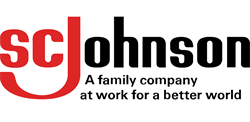 SC Johnson chairman and chief executive officer, Fisk Johnson, addresses the apparent contradiction between the company’s efforts to fight plastic pollution and the fact that it manufactures plastic packaged products. Johnson described a personal experience finding microplastics while scuba-diving in one of world’s last remaining pristine waters. He claimed that the company has been promoting sustainability for decades, as demonstrated by its use of post-consumer recycled content in plastic packaging. Johnson also highlighted the company’s Blue Paradox exhibit at the Museum of Science and Industry in Chicago as an initiative aimed at promoting awareness of the plastic pollution crisis.[Image Credit: © S.C. Johnson & Son Inc.]
SC Johnson chairman and chief executive officer, Fisk Johnson, addresses the apparent contradiction between the company’s efforts to fight plastic pollution and the fact that it manufactures plastic packaged products. Johnson described a personal experience finding microplastics while scuba-diving in one of world’s last remaining pristine waters. He claimed that the company has been promoting sustainability for decades, as demonstrated by its use of post-consumer recycled content in plastic packaging. Johnson also highlighted the company’s Blue Paradox exhibit at the Museum of Science and Industry in Chicago as an initiative aimed at promoting awareness of the plastic pollution crisis.[Image Credit: © S.C. Johnson & Son Inc.]
Startups Design Refillable Cleaning Products Based On Consumer Preferences
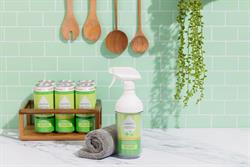 Startups Puracy, Grove Collaborative and Blueland are adapting their refillable cleaning products and packaging to consumer preferences to encourage wider adoption. For example, Puracy first used large plastic bottles in selling its products when it launched in 2015. In Spring 2023, the company introduced the Clean Can, an aluminum can that can be reused as a spray bottle. Refillables accounted for 59 percent of Puracy’s sales in the first quarter of 2023, an increase of more than a third from the first quarter of 2022. Results of Gartner’s most recent cost of living survey revealed that 40 percent of shoppers had increased their purchases of personal and household care products from companies that aim to reduce waste.[Image Credit: © PRNewswire and Puracy]
Startups Puracy, Grove Collaborative and Blueland are adapting their refillable cleaning products and packaging to consumer preferences to encourage wider adoption. For example, Puracy first used large plastic bottles in selling its products when it launched in 2015. In Spring 2023, the company introduced the Clean Can, an aluminum can that can be reused as a spray bottle. Refillables accounted for 59 percent of Puracy’s sales in the first quarter of 2023, an increase of more than a third from the first quarter of 2022. Results of Gartner’s most recent cost of living survey revealed that 40 percent of shoppers had increased their purchases of personal and household care products from companies that aim to reduce waste.[Image Credit: © PRNewswire and Puracy]
Concentrated Refills Offer Another Way To Reduce Plastic Packaging Waste
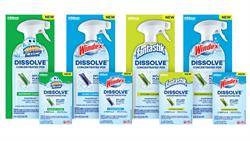 An SC Johnson story says concentrated refills require less packaging because they are many times smaller than their diluted counterpart end product. Other sustainability benefits offered by concentrated refills include reducing plastic waste by 90 percent or more and reducing carbon emission during manufacture and shipping. Contrary to misconception, refilling with a concentrate is as easy as refilling a water bottle. Consumers can help the growing number of companies that sell concentrated refills by trying the products and telling their friends about their benefits.[Image Credit: © S.C. Johnson & Son Inc.]
An SC Johnson story says concentrated refills require less packaging because they are many times smaller than their diluted counterpart end product. Other sustainability benefits offered by concentrated refills include reducing plastic waste by 90 percent or more and reducing carbon emission during manufacture and shipping. Contrary to misconception, refilling with a concentrate is as easy as refilling a water bottle. Consumers can help the growing number of companies that sell concentrated refills by trying the products and telling their friends about their benefits.[Image Credit: © S.C. Johnson & Son Inc.]
Report Says European Packaging Makers Have Circular Economy Strategy
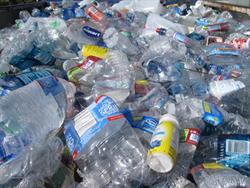
In the UK, Italy and Germany, 85 percent of packaging manufacturers said they have a circular economy strategy, with plans for reusing and recycling current materials and products as long as possible. Results of the survey commissioned by Aquapak also revealed that 21 percent of companies surveyed said they will be 100 percent circular in three years; 24 percent said they aim to achieve circularity within three to four years; and 23 percent expect to be circular in four to five years.[Image Credit: © tanvi sharma on Unsplash]
CAMPAIGNS, COMMITMENTS & NGOs
Brands And Governments Need To Work Toward Removing Confusion Over Recycling And Sustainability
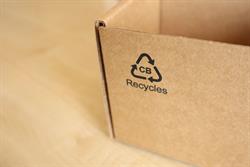 Because the recycling system is not adequate for the volume of waste in the US, there is an urgent need to improve the integration of sustainability and end-of-life management into products and designs. Brands and governments need to contribute toward overcoming the confusion over recycling and sustainability labelling. Also, brands should play a bigger role through innovating and communicating with consumers to help reduce waste. Other ways to achieving sustainable packaging and business practices are reduction of packaging, focusing on carbon footprint of the packaging, and reuse instead of recycling or composting.[Image Credit: © Ochir-Erdene Oyunmedeg on Unsplash]
Because the recycling system is not adequate for the volume of waste in the US, there is an urgent need to improve the integration of sustainability and end-of-life management into products and designs. Brands and governments need to contribute toward overcoming the confusion over recycling and sustainability labelling. Also, brands should play a bigger role through innovating and communicating with consumers to help reduce waste. Other ways to achieving sustainable packaging and business practices are reduction of packaging, focusing on carbon footprint of the packaging, and reuse instead of recycling or composting.[Image Credit: © Ochir-Erdene Oyunmedeg on Unsplash]
ALLIANCES, PARTNERSHIPS & JVs
Consumer Goods Companies Work Together To Promote Circular Plastics Economy In Global South
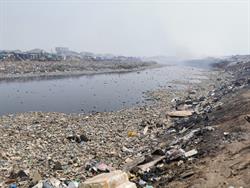 Amcor, Delterra, Mars and Procter & Gamble have launched a strategic partnership aimed at promoting a circular plastics economy in the Global South, which covers Africa, Latin America, the Caribbean and some parts of Asia and Oceania. The alliance aims to expand “downstream solutions” to create a better circular plastics economy, with the companies collectively pledging $6 million to the project for the next five years. The group aims to deal with the inadequate waste management and circular economy solutions across the value chain, including removing waste by design using Delterra’s Plastic IQ digital tool.[Image Credit: © Rebecca Bliklen on Unsplash]
Amcor, Delterra, Mars and Procter & Gamble have launched a strategic partnership aimed at promoting a circular plastics economy in the Global South, which covers Africa, Latin America, the Caribbean and some parts of Asia and Oceania. The alliance aims to expand “downstream solutions” to create a better circular plastics economy, with the companies collectively pledging $6 million to the project for the next five years. The group aims to deal with the inadequate waste management and circular economy solutions across the value chain, including removing waste by design using Delterra’s Plastic IQ digital tool.[Image Credit: © Rebecca Bliklen on Unsplash]
Polytag, Biffa Help Push RECOUP’s Bottle To Bottle Sustainability Project
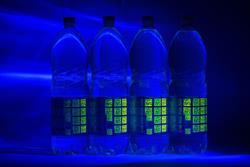
Polytag and Biffa have joined forces in supporting recycling charity RECOUP’s Bottle to Bottle project. Recycling company Polytag and sustainable waste management company Biffa will provide UK retailers Ocado Retail, Co-op and Aldi with packaging lifecycle data. Label printer Interket UK, Arla Foods, and Müller Milk & Ingredients are also supporting RECOUP’s sustainability project.[Image Credit: © Polytag]
CONSUMER & PUBLIC OPINION
Report Says European Consumers More Worried About Global Warming Than Plastic Pollution
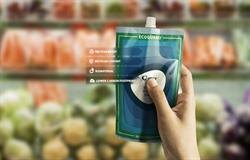 Fewer European consumers identified plastic pollution as their main environmental concern in 2023 compared with 2020, according to research by Amcor. Results of the survey of 3,000 consumers in the UK, Italy, France, Germany, Sweden and Poland revealed that 21 percent of respondents chose plastic pollution as their main environmental concern, down from 32 percent in 2020. Global warming is the most important environmental concern, with 52 percent of respondents in 2023, compared with 45 percent in 2020. While third-party claims and logos add credibility to brands’ sustainability claims, almost 80 percent of consumers said they do not understand the meaning of most logos.[Image Credit: © Amcor plc]
Fewer European consumers identified plastic pollution as their main environmental concern in 2023 compared with 2020, according to research by Amcor. Results of the survey of 3,000 consumers in the UK, Italy, France, Germany, Sweden and Poland revealed that 21 percent of respondents chose plastic pollution as their main environmental concern, down from 32 percent in 2020. Global warming is the most important environmental concern, with 52 percent of respondents in 2023, compared with 45 percent in 2020. While third-party claims and logos add credibility to brands’ sustainability claims, almost 80 percent of consumers said they do not understand the meaning of most logos.[Image Credit: © Amcor plc]
Survey Shows Consumers Having Nuanced Views Of Sustainable Packaging
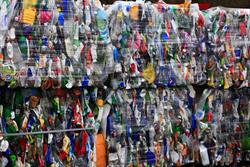 83 percent of consumers said they were concerned about the amount of single-use plastic that the public uses, according to a survey by the Hartman Group. Details from the report also revealed that 86 percent of respondents said they wanted to see more companies playing a leading role in developing sustainable packaging solutions, while 73 percent said they want to use less plastic but do not know how. The most Important consideration for sustainable packaging is designing it to protect the product and that it should be recyclable.[Image Credit: © Nareeta Martin and Unsplash]
83 percent of consumers said they were concerned about the amount of single-use plastic that the public uses, according to a survey by the Hartman Group. Details from the report also revealed that 86 percent of respondents said they wanted to see more companies playing a leading role in developing sustainable packaging solutions, while 73 percent said they want to use less plastic but do not know how. The most Important consideration for sustainable packaging is designing it to protect the product and that it should be recyclable.[Image Credit: © Nareeta Martin and Unsplash]
Survey Reveals Half Of US Consumers Prefer Paper-Based Packaging
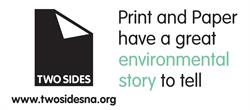 Half of American consumers believe paper-based packaging is more environment-friendly than other types of packaging. Results of the survey conducted by international research firm Toluna and commissioned by Two Sides North America revealed 59 percent of consumers prefer paper/cardboard packaging for being home compostable, while 43 percent choose it for being easier to recycle. Meanwhile, 39 percent said they like glass packaging for for practical and aesthetic features, including being reusable and for its look and feel.[Image Credit: © Two Sides]
Half of American consumers believe paper-based packaging is more environment-friendly than other types of packaging. Results of the survey conducted by international research firm Toluna and commissioned by Two Sides North America revealed 59 percent of consumers prefer paper/cardboard packaging for being home compostable, while 43 percent choose it for being easier to recycle. Meanwhile, 39 percent said they like glass packaging for for practical and aesthetic features, including being reusable and for its look and feel.[Image Credit: © Two Sides]
PACKAGING REDESIGNS
Manufacturers Present Sustainable Packaging Solutions At 2023 Interpack Show In Germany
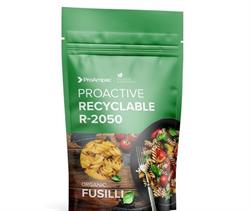 Packaging manufacturers highlighted their sustainable packaging solutions at the interpack trade show held in May 2023 in Düsseldorf, Germany. Jindal Films showcased its Bicor polypropylene mono-material as a sustainable alternative to polyethylene-based laminates. Bobst also displayed its oneBARRIER PrimeCycle, a polymer-based mono-material developed by the company with several partners. Also, ProAmpac presented its ProActive Recyclable R-2050 mono PE recyclable film, while Sabic exhibited its Trucircle solutions for flexible packaging. Several companies showcased paper-based recyclable packaging solutions, including ProAmpac’s ProActive Recyclable Paper-1000.[Image Credit: © ProAmpac]
Packaging manufacturers highlighted their sustainable packaging solutions at the interpack trade show held in May 2023 in Düsseldorf, Germany. Jindal Films showcased its Bicor polypropylene mono-material as a sustainable alternative to polyethylene-based laminates. Bobst also displayed its oneBARRIER PrimeCycle, a polymer-based mono-material developed by the company with several partners. Also, ProAmpac presented its ProActive Recyclable R-2050 mono PE recyclable film, while Sabic exhibited its Trucircle solutions for flexible packaging. Several companies showcased paper-based recyclable packaging solutions, including ProAmpac’s ProActive Recyclable Paper-1000.[Image Credit: © ProAmpac]
POLICY, REGULATION & LEGAL
Smurfit Kappa Opposes Proposed Changes To EU’s Planned Sustainable Packaging Regulation
.jpg&width=250&height=188) Smurfit Kappa has claimed that proposed amendments to the European Union’s proposed packaging and packaging waste regulation will work against the EU’s sustainable packaging policies. Also, the European Corrugated Packaging Association said that the proposed mandatory reuse targets for all packaging materials would increase the volume of plastic in circulation, as well as damage the paper packaging industry. Outlined in November 2022, the EU’s proposed regulation aims to reduce packaging pollution and make all packaging reusable or recyclable by 2030.[Image Credit: © vianet ramos on Unsplash]
Smurfit Kappa has claimed that proposed amendments to the European Union’s proposed packaging and packaging waste regulation will work against the EU’s sustainable packaging policies. Also, the European Corrugated Packaging Association said that the proposed mandatory reuse targets for all packaging materials would increase the volume of plastic in circulation, as well as damage the paper packaging industry. Outlined in November 2022, the EU’s proposed regulation aims to reduce packaging pollution and make all packaging reusable or recyclable by 2030.[Image Credit: © vianet ramos on Unsplash]
RESEARCH
Report Says Coca-Cola Is Worst Plastic And Packaging Polluter In UK
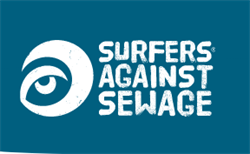 According to the latest edition of the “Dirty Dozen” report by Surfers Against Sewage, Coca-Cola Company is the worst plastic and packaging polluter in the UK, followed by McDonald’s and PepsiCo. Details of the report also revealed that the 12 brands on the list accounted for 70 percent of branded plastic and packaging pollution in the country. Mondelez International, Anheuser-Busch InBev, Tesco PLC, Haribo, Nestle, Mars, Heineken Holding, Carlsberg Group and Red Bull GmbH, make up the rest of the list.[Image Credit: © Surfers Against Sewage]
According to the latest edition of the “Dirty Dozen” report by Surfers Against Sewage, Coca-Cola Company is the worst plastic and packaging polluter in the UK, followed by McDonald’s and PepsiCo. Details of the report also revealed that the 12 brands on the list accounted for 70 percent of branded plastic and packaging pollution in the country. Mondelez International, Anheuser-Busch InBev, Tesco PLC, Haribo, Nestle, Mars, Heineken Holding, Carlsberg Group and Red Bull GmbH, make up the rest of the list.[Image Credit: © Surfers Against Sewage]
Report Predicts When UK Will Have More Plastic Waste Than It Can Handle
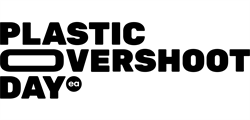 EA Earth Action is predicting that the UK will have its Plastic Overshoot Day, when the total amount of plastic waste is more than what the country can manage, on November 17, 2023. According to a new report by the research consulting firm, the country’s “mismanaged” short-life plastic waste is forecast to go over 256,000 tonnes by the end of 2023. Data from the report, which focuses on short-life plastic waste from solid waste management systems, shows the UK will account for 14.1 hours out of the 157 days of “plastic overshoot” planned in 2023.[Image Credit: © EA – Earth Action]
EA Earth Action is predicting that the UK will have its Plastic Overshoot Day, when the total amount of plastic waste is more than what the country can manage, on November 17, 2023. According to a new report by the research consulting firm, the country’s “mismanaged” short-life plastic waste is forecast to go over 256,000 tonnes by the end of 2023. Data from the report, which focuses on short-life plastic waste from solid waste management systems, shows the UK will account for 14.1 hours out of the 157 days of “plastic overshoot” planned in 2023.[Image Credit: © EA – Earth Action]
Copyright 2026 Business360, Inc.

